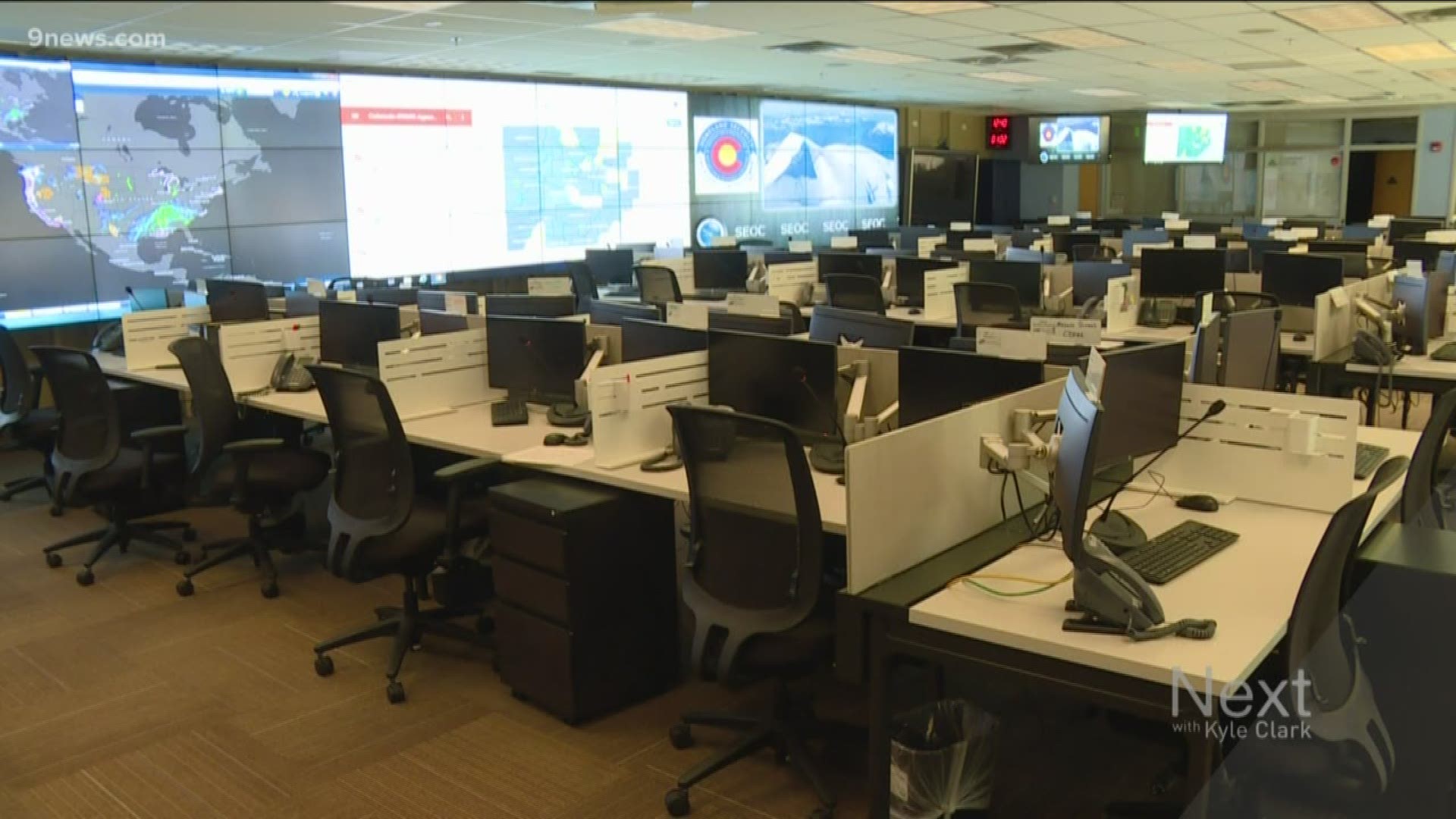DENVER — At the start of the semester, students get a syllabus spelling out what can be expected for the year.
Colorado's Director of Emergency Management provided a syllabus of sorts for local jurisdictions for his goals for 2020. One of the areas of focus for Director Mike Willis is "alert and warning."
According to Willis, 83% of Colorado's 64 counties have an alert and warning plan. In case of an emergency, 54 counties have written plans detailing what to do and how to do it. That means 10 counties do not. What's wrong with those 10 counties?
"I never look at it as what's wrong, it's just what's left to do," said Willis.
Are the residents of those 10 counties less safe?
"They're less prepared," Willis said.
An alert and warning plan requires more than just writing a policy that says, "in case of flood, head for higher ground."
"An alert and warning plan, it's relatively complicated because our communities have many, many different needs," said Willis. "We have many people who have access and functional needs, English as a second language, hard of hearing, blind, mobility challenged, and so an alert and warning plan has to be comprehensive enough to cover all of those community members."
Which 10 counties plan for no plan?
The Department of Emergency Management didn't have the list readily available but promises to send it to Next with Kyle Clark as soon as it is.
Another interesting statistic that Willis hopes to change during 2020, is the number of counties that are able to use the IPAWS alert system. IPAWS is the Integrated Public Alert & Warning System. It's the same alert system that pushes AMBER Alerts to your phone based on your location to cell towers.
Slightly more than half of Colorado's counties have permission to use the system to automatically push an emergency warning to your phone, by drawing a circle around a geographic area. The alert is sent to cell phones connected to cell phone towers within that area. If you drive into the area while the alert is active, you'll get the alert once you're connected to one of the cell towers.
A handful of counties are in the process of going through a four-step process to being alerting residents through IPAWS.
Multiple counties on the Eastern Plains, Fremont, Chaffee, Clear Creek and San Juan, have not started the process yet.
Emergency management leaders in Fremont and Yuma counties told Next they are beginning the steps to use IPAWS.
Willis thought that counties might be hesitant out of fear.
The most high-profile mistake was in 2018, when the Hawaii government sent an IPAWS alert to cell phones about an incoming missile. The text was sent by mistake.
"There's always, I think, a little bit of fear that you'll over alert or you'll make a mistake and you'll send an alert out that alarms the public unnecessarily," said Willis. "I would rather live with that risk than live with the risk of not telling them when something bad does happen."
This proactive alerting during an emergency is in addition to the other forms of communications local governments already use.
Residents can receive email and text messages if they sign up for those types of emergency alerts.
According to the Department of Emergency Management, about 12% of residents sign up for those alerts, meaning nine-out-of-10 don't get emergency alerts.
"Please do your part. [IPAWS] is our part, this is what we can do, but it's just one of the tools, and so I always ask our neighbors, go in and sign up and help us help you," said Willis.
In 2017, 9NEWS contacted multiple outdoor venues to get evacuation and emergency plans. Venues including the Denver Zoo, Red Rocks and Fiddlers Green. Multiple venues did not want to provide specifics for a variety of reasons. At home Denver Broncos games, a video is shown explaining what to do in case of emergency. Willis thought it might be good if patrons knew the emergency plans in advance.
"I'm a fan of an informed public," said Willis.
SUGGESTED VIDEOS | Full Episodes of Next with Kyle Clark

